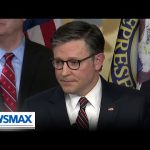President Trump announced the U.S. will hold direct talks with Iran over its nuclear program this Saturday. Standing beside Israeli Prime Minister Benjamin Netanyahu, Trump warned Iran faces “great danger” if negotiations fail. Tehran quickly denied the talks would be direct, claiming Oman would mediate instead.
The move comes as Iran’s nuclear ambitions grow more aggressive. Reports show Iran now enriches uranium to 60% purity, just steps away from weapons-grade material. Trump’s “maximum pressure” strategy has hit Iran’s economy hard, with its currency collapsing and sanctions crippling trade.
Netanyahu voiced cautious support, stressing any deal must fully dismantle Iran’s nuclear capabilities. He compared the effort to Libya’s 2003 surrender of its nuclear program. Conservatives praise Trump’s firm stance, seeing it as a sharp contrast to past administrations that “appeased” Iran.
Military readiness remains a priority. The U.S. recently deployed stealth bombers and an aircraft carrier near Iran, signaling strength. Trump’s team believes showing force backs diplomacy, a strategy that has defined his foreign policy. Critics argue threats risk escalation, but supporters say only strength deters rogue regimes.
Iran’s leaders dismiss Trump’s warnings as “psychological operations.” Yet their economy’s collapse suggests sanctions work. The rial currency briefly recovered on talk hopes, showing Tehran feels pressure. A strong deal could stabilize the region, but trust remains low after past failures.
The talks will test whether diplomacy can stop a nuclear Iran. Trump’s critics claim his approach is reckless, but his base sees bold leadership. With elections looming, the outcome could shape global security for years. For now, all eyes are on Oman—and whether Tehran opts for peace or defiance.




